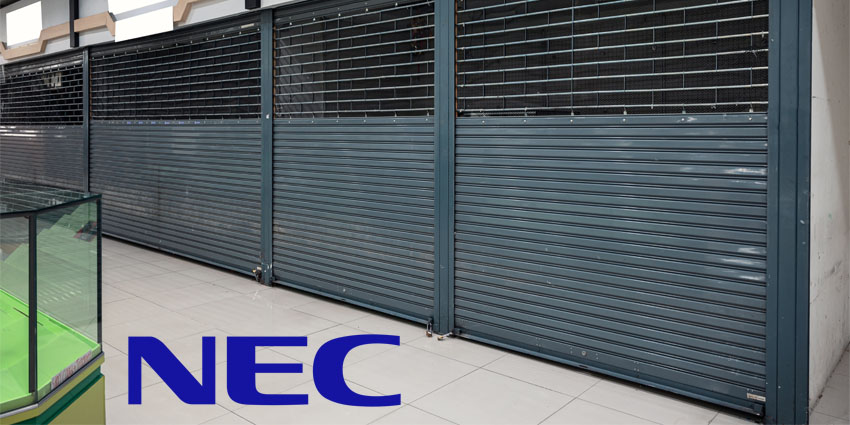An innovative contender in the world of Unified Communications, Fuze is a company that’s focused on bringing true unity back to UC. Their business model is built upon a UCaaS platform that includes everything from messaging and video, to voice and content sharing. Fuze deliver their services to enterprise customers, often with global, multinational footprints, to help them become more focused and productive.
Derek Yoo, the co-founder and recently-appointed CPO of the company, joined us in our Strategic Insights for 2018 series, to share his thoughts on everything from customer experience to digital transformation. Derek has been with Fuze for 10 years, only recently moving from CTO to CPO to focus his efforts on part management, engineering, tech operation, and product development. Before co-founding this new brand, Derek was building his knowledge in the Dev-Ops market with BladeLogic.
What has Fuze Been Doing to Help Customers/Partners Succeed in 2017?
Fuze is just one of the many companies that have entered a stage of transformation and growth over the last couple of years. I was interested to find out how Derek felt the brand had been responding to the evolving nature of UC in 2017, in a backdrop filled with new technology and opportunities.
“If I reflect on this year, it’s safe to say the market has been changing. There’s been a lot of maturation and consolidation happening. I think part of the reason for that is that there’s now more agreement on what it means to have a UC platform. In the past, there were different opinions based on what different companies could offer.”
“Now, it’s much clearer that you need exceptional voice functionalities, messaging, and cloud to power the world today. It’s a broad platform to work with, and you need to achieve a certain scale to address functionality across the whole range.”
For Fuze, the consolidation and clarification of the market is a positive thing and a sign that the industry is maturing. To help their customers and partners achieve a more competitive edge in this environment, they’ve been focusing heavily on data, and the potential it provides.
“We had a revelation a couple of years ago around the importance of data – all the different interactions that customers have on our platform, and how we can use the types and content of those interactions to create in-depth models for the future. There’s a lot of rich data to tap into, and so much amazing technology available for those who have the right data. That’s where much of our R&D budget is going right now.”
How Have You Learned and Progressed in 2017?
With a better understanding of where Fuze has been, and where the brand is heading, I was keen to hear Derek’s thoughts on the key takeaways he had encountered over the previous year. For him, the main lessons were around the importance of data, and how it can be used to fuel customer experience and digital transformation in the years ahead.
“In the contact centre, we’ve had a long tradition of using data and analytics to understand the performance of agents. Where I see a lot of opportunities is not in the contact centre, but in the general information worker.”
“One of the things we’ve been doing this year, and something we started on in 2016, was to create a platform that can collect all this generated data in real time and send it into a cloud platform. Once you have that data, you can then use it to power new models with machine learning techniques.”
“It means you can ask yourself what makes a more effective salesperson, and then measure the performance of employees against the guidelines you have.”
For Fuze, the more you can make positive changes to the enterprise based on analytics and evidence, the easier it becomes to improve customer experience and enhance business performance at the same time. However, none of this transformation can be achieved without the right information:
“You really need to be in the middle of all these interactions to get the right data sets.”
What Opportunities and Challenges Do You Predict for 2018?
With so much transformation and consolidation to spark movement in 2018, many companies in the Unified Communications industry are moving into 2018 with big plans for development. As an already agile and innovative business, Fuze is no exception to the rule. Derek told me that they’re currently working on further empowering their partner channels:
“As we’ve grown, we’ve had a lot of strategic partnerships with people who help with the up-front customer acquisition side, but not so much on the support and implementation side. We’re growing very quickly, and we needed to get more support when it came to offering that help to end-users. Of course, to make our partners more effective, we’re also tapping into the back end of our office too – there’s a lot of work happening there beneath the water line.”
Another challenge that Derek outlined, was the challenge of providing ongoing quality, something that he described as a concern that’s as old as the hills. “When you bring new technology to the marketplace, you may be replacing very old systems, but they’re still systems that work well, and have offered quality for years.”
“In UC, the challenge with a lot of things, like your real-time components, for instance, is that the quality of your service is dependent on a lot of things beyond your control, like the customer’s LAN. This is an area we’re consistently making investments in.”
As a relatively agile, but growing company, Fuze compete against the likes of Microsoft and believe that while they might be smaller than their competitors, they can offer a more focused experience. Derek told me that their R&D budget is increasing annually,
“It’s never enough for me in terms of all the opportunities I can see. For us, it’s just about continuing to offer amazing quality with all the solutions we provide. Everything we do is to give the customer a better experience, and I consider that to be an ongoing opportunity for the years ahead.”
What Should Be on the Priority List for 2018?
Going into the year ahead, Fuze considers CX and UX to be important drivers for the age of cloud communication and adoption. They recently conducted their own CIO outlook on driving digital transformation in the marketplace, focusing on the new challenges that technology experts face.
The report found that IT departments are spending 83% of their time managing communication and IT platforms, while only putting aside 11% of their time for future innovation. However, for most CIOs, Fuze found that the focus is on simplifying and consolidating the communication platforms that they have available to them in the years ahead. The less siloed a UC strategy can be, the more effective a business becomes.
Derek told me that the primary thing Fuze focuses on is User Experience (UX).
“To us, the length of your feature list is much less important than showing demonstrable engagement with your users and making sure the features you have are being adopted. That’s a key thing that goes into all of the services we offer. We’re constantly looking for ways to drive more adoption and engagement, and we’re even in the process of delivering a new version of our product with refinements based on customer feedback.”
For Fuze, the satisfaction of the customer will always be the end-goal, and something they recommend CIOs and businesses in the UC industry should be focusing on if they want to succeed.







